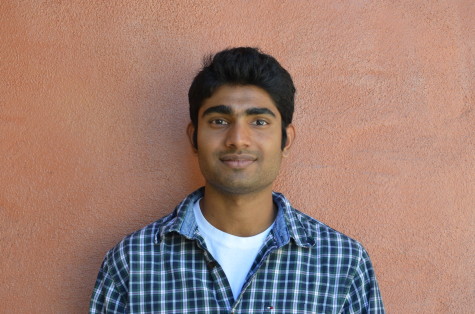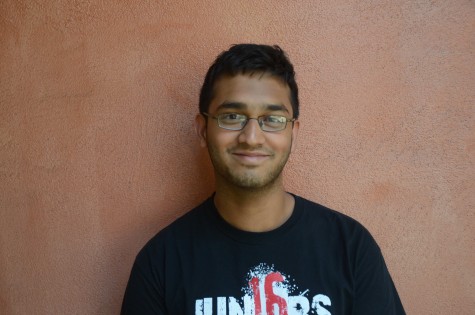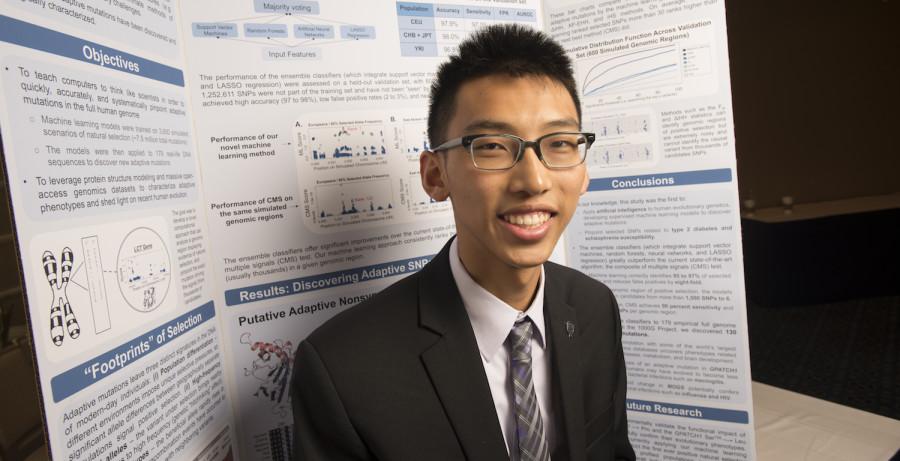Senior Andrew Jin Named Intel STS Winner
Society for Science and the Public
Senior Andrew Jin was named a first place winner at the Intel STS competition. Andrew is the first student from the school to win this award.
Senior Andrew Jin (12) was named one of the three first-place winners of the Intel Science Talent Search (STS) competition on Tuesday and will be honored at an assembly on Monday. This is the first time in the school’s history a senior has placed first at the competition.
Andrew placed first in the category “Global Good” for his project in which he explored evolutionary genetics and their role in human genome mutations. Along with the honor of the Intel STS award, Andrew also received a prize of $150,000.
Dr. Pardis Sabeti, whose lab Andrew worked in at Harvard University, described him as a wonderful researcher.
“He’s brilliant but he also just has the right frame of mind,” Sabeti said “He has very, very good analytical skills, and is thoughtful and just a pleasure to work with.”
Alumnus Yi Sun (‘06) placed second at the Intel STS competition nine years ago for a mathematics project, but this is the first time a student has been named a first-place winner. The school also set a new record by sending three finalists to the Intel STS competition: Rohith Kuditipudi (12), Steven Wang (12) and Andrew; and had fifteen semifinalists, the largest number in the nation.
Friend David Lin commended Andrew for his diligence and effort in science research.
“He’s always been extraordinarily hardworking and was never afraid to put in that extra effort,” he said.
David added that this year’s Intel STS results represent a new goal for future students to work towards. Biology teacher Gary Blickenstaff echoed David’s thoughts.
“I think the future looks obviously really bright,” Blickenstaff said. “We’ve got a fairly well-established research program now…it’s just going to expand and get better.”
Intel finalists competed starting last Wednesday in Washington D.C. There, they presented their research, which spanned many scientific categories ranging from computational biology to mathematics to modern physics. The 40 finalists were also given the opportunity to briefly shake hands with President Obama before he gave a public announcement.
Beginning from 1942, Westinghouse Electric and subsequently the Intel Corporation began recognizing national research talent. Eight finalists or winners have won the Nobel Prize, and 30 have been elected to the National Academy of Sciences. This year, the competition changed its policy on rewarding prizes and instead gave awards in three varying categories, with first place earning a $150,000 cash prize, second place receiving a $75,000 cash prize and third place receiving a $35,000 cash prize.
Andrew will continue compiling his research to submit to journals this year.
Contributing to this article: Apoorva Rangan

Vedant Thyagaraj is the Science & Technology Editor for Harker Aquila. He is currently a senior and has been on staff for the past three years. Vedant...

Vineet Kosaraju (12) is the STEM Editor for both Harker Aquila and Winged Post. He is a senior and has been part of the journalism program for the past...


















![“[Building nerf blasters] became this outlet of creativity for me that hasn't been matched by anything else. The process [of] making a build complete to your desire is such a painstakingly difficult process, but I've had to learn from [the skills needed from] soldering to proper painting. There's so many different options for everything, if you think about it, it exists. The best part is [that] if it doesn't exist, you can build it yourself," Ishaan Parate said.](https://harkeraquila.com/wp-content/uploads/2022/08/DSC_8149-900x604.jpg)




![“When I came into high school, I was ready to be a follower. But DECA was a game changer for me. It helped me overcome my fear of public speaking, and it's played such a major role in who I've become today. To be able to successfully lead a chapter of 150 students, an officer team and be one of the upperclassmen I once really admired is something I'm [really] proud of,” Anvitha Tummala ('21) said.](https://harkeraquila.com/wp-content/uploads/2021/07/Screen-Shot-2021-07-25-at-9.50.05-AM-900x594.png)







![“I think getting up in the morning and having a sense of purpose [is exciting]. I think without a certain amount of drive, life is kind of obsolete and mundane, and I think having that every single day is what makes each day unique and kind of makes life exciting,” Neymika Jain (12) said.](https://harkeraquila.com/wp-content/uploads/2017/06/Screen-Shot-2017-06-03-at-4.54.16-PM.png)








![“My slogan is ‘slow feet, don’t eat, and I’m hungry.’ You need to run fast to get where you are–you aren't going to get those championships if you aren't fast,” Angel Cervantes (12) said. “I want to do well in school on my tests and in track and win championships for my team. I live by that, [and] I can do that anywhere: in the classroom or on the field.”](https://harkeraquila.com/wp-content/uploads/2018/06/DSC5146-900x601.jpg)
![“[Volleyball has] taught me how to fall correctly, and another thing it taught is that you don’t have to be the best at something to be good at it. If you just hit the ball in a smart way, then it still scores points and you’re good at it. You could be a background player and still make a much bigger impact on the team than you would think,” Anya Gert (’20) said.](https://harkeraquila.com/wp-content/uploads/2020/06/AnnaGert_JinTuan_HoHPhotoEdited-600x900.jpeg)

![“I'm not nearly there yet, but [my confidence has] definitely been getting better since I was pretty shy and timid coming into Harker my freshman year. I know that there's a lot of people that are really confident in what they do, and I really admire them. Everyone's so driven and that has really pushed me to kind of try to find my own place in high school and be more confident,” Alyssa Huang (’20) said.](https://harkeraquila.com/wp-content/uploads/2020/06/AlyssaHuang_EmilyChen_HoHPhoto-900x749.jpeg)



